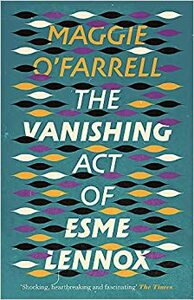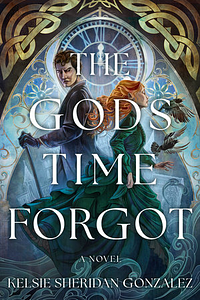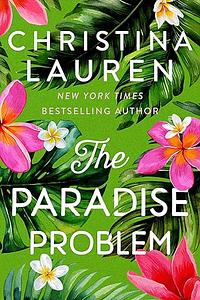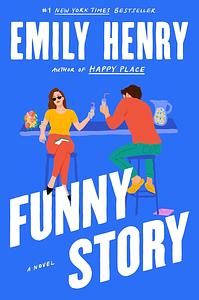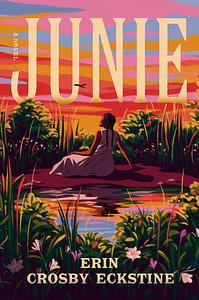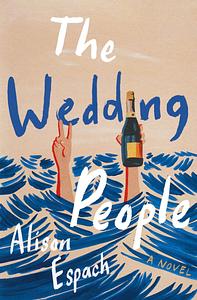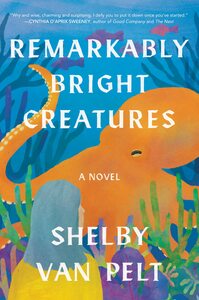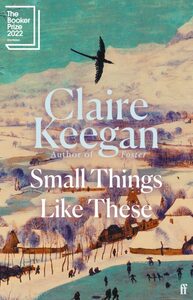Take a photo of a barcode or cover
tinker_reads's Reviews (52)
dark
emotional
mysterious
reflective
sad
tense
fast-paced
Plot or Character Driven:
Character
Strong character development:
Complicated
Loveable characters:
Complicated
Diverse cast of characters:
No
Flaws of characters a main focus:
Yes
slow-paced
Plot or Character Driven:
A mix
Strong character development:
No
Loveable characters:
No
Diverse cast of characters:
No
Flaws of characters a main focus:
Yes
funny
relaxing
medium-paced
Plot or Character Driven:
A mix
Strong character development:
No
Loveable characters:
Yes
Diverse cast of characters:
No
Flaws of characters a main focus:
Complicated
funny
lighthearted
medium-paced
Plot or Character Driven:
A mix
Strong character development:
Yes
Loveable characters:
Yes
Diverse cast of characters:
No
Flaws of characters a main focus:
Yes
adventurous
challenging
emotional
reflective
tense
medium-paced
Plot or Character Driven:
A mix
Strong character development:
Yes
Loveable characters:
Yes
Diverse cast of characters:
Yes
Flaws of characters a main focus:
Complicated
Mesmerizing and haunting - a heartfelt debut
Erin Crosby Eckstine’s novel Junie is a gripping debut that blends historical fiction with magical realism, immersing readers in a deeply atmospheric and emotionally charged narrative. Set against the backdrop of the haunting antebellum South, the novel traces a young girl's search for truth, freedom, and closure in a world defined by loss, violence, and secrets.
Sixteen-year-old Junie dreams of a life of stories, pages, poetry, but most importantly, freedom. Along with her closest remaining kin, she’s been enslaved all her life on Bellereine Plantation in Alabama, where they *work* as household help. Whilst spending the day with Violet, her master’s daughter for whom she housemaids for and shares a strong friendship with, at night, Junie secretly wanders through the forest, grieving the sudden death of her older sister, Minnie, which she believes she caused.
When guests arrive at Bellereine, hinting at a possible marriage proposal to Violet, Junie realizes that not only life as she has always known might be at risk, but also the possibility of living a different future. Frantic for a solution, Junie commits a desperate act—one that ends up rousing Minnie’s spirit from the grave, bound to this world unless Junie can free her by completing three tasks. As the foundations of her world begin to crack, Junie uncovers chilling secrets buried within Bellereine, compelling her to confront the forces that have long governed her life and face the sacrifices that come with the pursuit of freedom.
My first takeaway from this book is the wonderful writing and the descriptions that the author gives, not only about the characters but also their surroundings. The story hooked me almost straight from the first chapter, but I can’t lie, I was a bit thrown off once the paranormal element entered the scene. Nevertheless, it was one of those moments of “trust the process” and I’m very glad I did, because it rewarded me with a narrative full of detail, emotion, plot twists, and vibrant storytelling. Erin Eckestine really brings the reader to the scene, but also transports the characters off the page, creating a beautiful in-between where nothing exists but that place and moment in *fictional* time.
As for the themes present in the book, the author brought forward another perspective - instead of focusing on the plantation itself, this book tells the life of those who worked in the house, close to the family. I like this different point of view, but maybe I would have enjoyed it a bit more if there were more scenes about Junie’s family and their surroundings. However, I understand that it wasn’t the necessary focus of the book, rather Junie’s coming-of-age.
I genuinely urge everyone to read this story - it takes a lot to write something so heavy in such a vibrant and colorful way. In the acknowledgements, the author says that this story pays homage to one of her ancestors, and as a historian, I think that these types of books, albeit fictional, harbor a lot of true emotions and whispers of real life. Read them, feel them, and let them teach you.
The following part of this review contains spoilers
Oh, this book was a whirlwind! It had so much going on, I spent two full days completely glued to my Kobo (a kindle cousin) just to finish it. My first reaction was really the vibrant storytelling; I could see everything that was written on those pages behind my eyelids. Then, my second reaction, the plot twists. Jumping right on the wagon, I called the romance between Violet and Beatrice, but I wasn’t expecting any of those unfolding events. The descriptions were so rich that I remember reading the fallout between Junie and Violet, and it felt like it was happening to me.
Oh, and Calleb. I loved their interactions, especially when Junie was teaching him how to read, and the way he insisted on calling her Delilah June, I MELTED. The ending had me in such a bittersweet state, I was tearing up because I was grieving him, them, and at the same time, I was relieved for her, to finally be free. It was such an emotional rollercoaster and so well done.
As I mentioned before, the only thing that threw me off a bit was the paranormal aspect. And yes, I know it’s in the premise of the book, but when Minnie’s spirit appeared, my brow frowned. I don’t appreciate the exaggeration that comes with hautings, unless it’s done gracefully - and you guessed it, it was. Minnie appears only when she has to, and mostly to serve as a reminder for Junie to get it together and focus. Of course, she does neither and most of the time I found myself yelling at the book “LISTEN TO YOUR SISTER”, but then again, everything is done in such a tasteful way that it’s perfectly understandable why Junie is so reluctant to do what Minnie wants her to.
Rated it 4.5, missing that 0.5 because I think the book deserved a little more historical depth (for me, of course). Anyway, go read it!
Erin Crosby Eckstine’s novel Junie is a gripping debut that blends historical fiction with magical realism, immersing readers in a deeply atmospheric and emotionally charged narrative. Set against the backdrop of the haunting antebellum South, the novel traces a young girl's search for truth, freedom, and closure in a world defined by loss, violence, and secrets.
Sixteen-year-old Junie dreams of a life of stories, pages, poetry, but most importantly, freedom. Along with her closest remaining kin, she’s been enslaved all her life on Bellereine Plantation in Alabama, where they *work* as household help. Whilst spending the day with Violet, her master’s daughter for whom she housemaids for and shares a strong friendship with, at night, Junie secretly wanders through the forest, grieving the sudden death of her older sister, Minnie, which she believes she caused.
When guests arrive at Bellereine, hinting at a possible marriage proposal to Violet, Junie realizes that not only life as she has always known might be at risk, but also the possibility of living a different future. Frantic for a solution, Junie commits a desperate act—one that ends up rousing Minnie’s spirit from the grave, bound to this world unless Junie can free her by completing three tasks. As the foundations of her world begin to crack, Junie uncovers chilling secrets buried within Bellereine, compelling her to confront the forces that have long governed her life and face the sacrifices that come with the pursuit of freedom.
My first takeaway from this book is the wonderful writing and the descriptions that the author gives, not only about the characters but also their surroundings. The story hooked me almost straight from the first chapter, but I can’t lie, I was a bit thrown off once the paranormal element entered the scene. Nevertheless, it was one of those moments of “trust the process” and I’m very glad I did, because it rewarded me with a narrative full of detail, emotion, plot twists, and vibrant storytelling. Erin Eckestine really brings the reader to the scene, but also transports the characters off the page, creating a beautiful in-between where nothing exists but that place and moment in *fictional* time.
As for the themes present in the book, the author brought forward another perspective - instead of focusing on the plantation itself, this book tells the life of those who worked in the house, close to the family. I like this different point of view, but maybe I would have enjoyed it a bit more if there were more scenes about Junie’s family and their surroundings. However, I understand that it wasn’t the necessary focus of the book, rather Junie’s coming-of-age.
I genuinely urge everyone to read this story - it takes a lot to write something so heavy in such a vibrant and colorful way. In the acknowledgements, the author says that this story pays homage to one of her ancestors, and as a historian, I think that these types of books, albeit fictional, harbor a lot of true emotions and whispers of real life. Read them, feel them, and let them teach you.
The following part of this review contains spoilers
Oh, this book was a whirlwind! It had so much going on, I spent two full days completely glued to my Kobo (a kindle cousin) just to finish it. My first reaction was really the vibrant storytelling; I could see everything that was written on those pages behind my eyelids. Then, my second reaction, the plot twists. Jumping right on the wagon, I called the romance between Violet and Beatrice, but I wasn’t expecting any of those unfolding events. The descriptions were so rich that I remember reading the fallout between Junie and Violet, and it felt like it was happening to me.
Oh, and Calleb. I loved their interactions, especially when Junie was teaching him how to read, and the way he insisted on calling her Delilah June, I MELTED. The ending had me in such a bittersweet state, I was tearing up because I was grieving him, them, and at the same time, I was relieved for her, to finally be free. It was such an emotional rollercoaster and so well done.
As I mentioned before, the only thing that threw me off a bit was the paranormal aspect. And yes, I know it’s in the premise of the book, but when Minnie’s spirit appeared, my brow frowned. I don’t appreciate the exaggeration that comes with hautings, unless it’s done gracefully - and you guessed it, it was. Minnie appears only when she has to, and mostly to serve as a reminder for Junie to get it together and focus. Of course, she does neither and most of the time I found myself yelling at the book “LISTEN TO YOUR SISTER”, but then again, everything is done in such a tasteful way that it’s perfectly understandable why Junie is so reluctant to do what Minnie wants her to.
Rated it 4.5, missing that 0.5 because I think the book deserved a little more historical depth (for me, of course). Anyway, go read it!
medium-paced
Plot or Character Driven:
Character
Strong character development:
No
Loveable characters:
No
Diverse cast of characters:
No
Flaws of characters a main focus:
Yes
emotional
funny
inspiring
reflective
medium-paced
emotional
mysterious
medium-paced
Plot or Character Driven:
A mix
Strong character development:
Complicated
Loveable characters:
Yes
Diverse cast of characters:
No
Flaws of characters a main focus:
Complicated
emotional
hopeful
lighthearted
medium-paced
Plot or Character Driven:
A mix
Strong character development:
Yes
Loveable characters:
Yes
Diverse cast of characters:
Complicated
Flaws of characters a main focus:
Yes
An Octopus, a Widow, and the Healing Power of Unlikely Friendships
Remarkably Bright Creatures is the kind of novel that sneaks up on you - not with shocking plot twists, but with a heartfelt and touching story, lived through the eyes of an elderly widow, a directionless young man, and a highly intelligent octopus named Marcellus.
It begins quietly, introducing Tova Sullivan, a 70-year-old woman still grieving the loss of her son, Erik, who disappeared under mysterious circumstances three decades earlier. Tova is independent, reserved, and deeply lonely. Her nights are spent cleaning the Sowell Bay Aquarium, where she strikes an unusual connection with Marcellus, a giant Pacific octopus whose short lifespan is nearing its end, but whose mind remains sharp, sardonic, and astonishingly observant. I must say that when I picked up this book, I was a bit concerned about the way this friendship would develop. I imagined that it would be a two-way conversation, where the characters would engage with each other in a verbal manner. However, I was pleasantly surprised when I learned that this was not the case. Marcellus has the ability to understand Tova, but to her, he is just an octopus.
He narrates parts of the story with dry wit and emotional clarity that outmatches the humans around him. His character works as the conscience of the story, and it is he who gives away the clues for the reader to fully grasp what’s going on, way before the characters do. And honestly, this is what makes the book so immensely adorable. The connection between Tova and Marcellus, as well as the connection the octopus creates with the readers, to me, is the key element for the brilliant success of this book.
The arrival of Cameron, a young man drifting through life in search of identity and belonging, adds a parallel thread of longing and self-discovery. His journey toward purpose intersects with Tova’s in ways neither of them expects, and Van Pelt handles the convergence of their lives with tenderness and restraint. The plot gradually unwinds, not with dramatic twists, but with small moments of emotional revelation that feel entirely earned.
What makes this novel is its delicate emotional texture. The author explores themes of grief, aging, abandonment, and reconciliation with great empathy and zero sentimentality. Everything is what it is, because that’s the way life is. To me, this made the book three times more emotional, because while one can feel the character's pain, we also know that there is nothing that can be done about it. Like the character, you just have to accept that it is the way it is (in the spoiler section, I’ll talk about this with more depth).
Van Pelt’s prose is clean and thoughtful, laced with humor and a quiet reverence for the inner lives of her characters, even (or especially) the non-human ones. Marcellus’s chapters, in particular, offer a unique point of view that never feels gimmicky. Instead, they ground the novel in a sense of wonder and intelligence that mirrors the emotional growth happening on land.
Remarkably Bright Creatures is a masterclass in gentle storytelling. It’s about the kinds of relationships that heal, not loudly, but through patience, empathy, and recognition. The novel reminds us that connection can come from the unlikeliest places, and that it’s never too late to uncover the truth, to forgive, or to begin again.
It’s a 5-star read that I will never stop recommending.
The following part of this review contains spoilers
This book absolutely broke me. This was the first book I ever listened to. I was working at the library, just doing inventory of the things that I had already gathered for my research, when I decided that I would give audiobooks a go. It was a very comical but amazing experience, which honestly I think benefits the book. The amazing work of the voice actors really paid off - especially Marcellus, with a deep, witty, and cunning voice. I can’t look at an octopus now without imagining that he is thinking with that voice in his head. But well, back to the book.
This story is built slowly but steadily. You get the chance to fully meet the characters, to understand who they are, but most importantly, their reasoning for acting the way they do. Every time I learned more and more about Tova’s history, my heart shattered for her. But her character, in her simplicity, held her grief close to her heart, but never her head. She allowed herself to keep going, to keep living and working, to have a future, even when her son didn’t get a chance to do so. And even in the end, when the house is already sold and everything, she allows herself to begin again, even at 70. I think it’s so heartwarming to see a character so real, with a life that could happen to anyone, to show that it is possible to keep on living, even in the hardest circumstances.
As for Cameron, his character annoyed me so much in the beginning that everytime I listened to his POV my eyes rolled back. I think his growth was carefully done all throughout the book. We are given the chance to understand that deep inside, he really feels lost, without identity, and that’s why he lives and acts carefree, without excusing him for still behaving like a teenager in his thirties. The lack of self-confidence is evident, and it is heartwarming to see that around Tova, even without realising, he starts to act with more care and more responsibility. I loved these micro-acts, because in the end, it really complemented the plot, making it more touching.
I must include here a side note for Erik, because all throughout the book, I really thought that he was alive, but on the other side of the country or around the world, anywhere but the bottom of the ocean. When Marcellus says that he recognises Tova’s key because he once touched the very same pattern when he was young and free in the sea, my heart shattered. I remember it all so well, I was walking home, almost at the end of the Royal Mile in Edinburgh, when Marcellus said it, and my face just dropped and even my step fell short. That’s when I first learn about the dangers of listening to an audiobook out in the wild, because I was completely immersed in the words and forgot my whereabouts. I had so many people around me that I must have looked like an idiot, stopping suddenly with a shocked, sad expression.
At the same time, the ending left me wanting more. I really wanted Cameron to find his mother, and for Tova to have some answers. However, later I understood that if that happened, then the book wouldn’t feel so raw and real. I definitely think that the motto of this book is “Life is what it is” and it does a great service proving it.
To end this review that is already super long, I just want to say that this book made me laugh, cry, everything, everywhere, all at once. It was such an amazing read. I cannot recommend it enough. I could sit for hours talking about it, and it still wouldn’t be enough. Go read it. You’ll love it.
Remarkably Bright Creatures is the kind of novel that sneaks up on you - not with shocking plot twists, but with a heartfelt and touching story, lived through the eyes of an elderly widow, a directionless young man, and a highly intelligent octopus named Marcellus.
It begins quietly, introducing Tova Sullivan, a 70-year-old woman still grieving the loss of her son, Erik, who disappeared under mysterious circumstances three decades earlier. Tova is independent, reserved, and deeply lonely. Her nights are spent cleaning the Sowell Bay Aquarium, where she strikes an unusual connection with Marcellus, a giant Pacific octopus whose short lifespan is nearing its end, but whose mind remains sharp, sardonic, and astonishingly observant. I must say that when I picked up this book, I was a bit concerned about the way this friendship would develop. I imagined that it would be a two-way conversation, where the characters would engage with each other in a verbal manner. However, I was pleasantly surprised when I learned that this was not the case. Marcellus has the ability to understand Tova, but to her, he is just an octopus.
He narrates parts of the story with dry wit and emotional clarity that outmatches the humans around him. His character works as the conscience of the story, and it is he who gives away the clues for the reader to fully grasp what’s going on, way before the characters do. And honestly, this is what makes the book so immensely adorable. The connection between Tova and Marcellus, as well as the connection the octopus creates with the readers, to me, is the key element for the brilliant success of this book.
The arrival of Cameron, a young man drifting through life in search of identity and belonging, adds a parallel thread of longing and self-discovery. His journey toward purpose intersects with Tova’s in ways neither of them expects, and Van Pelt handles the convergence of their lives with tenderness and restraint. The plot gradually unwinds, not with dramatic twists, but with small moments of emotional revelation that feel entirely earned.
What makes this novel is its delicate emotional texture. The author explores themes of grief, aging, abandonment, and reconciliation with great empathy and zero sentimentality. Everything is what it is, because that’s the way life is. To me, this made the book three times more emotional, because while one can feel the character's pain, we also know that there is nothing that can be done about it. Like the character, you just have to accept that it is the way it is (in the spoiler section, I’ll talk about this with more depth).
Van Pelt’s prose is clean and thoughtful, laced with humor and a quiet reverence for the inner lives of her characters, even (or especially) the non-human ones. Marcellus’s chapters, in particular, offer a unique point of view that never feels gimmicky. Instead, they ground the novel in a sense of wonder and intelligence that mirrors the emotional growth happening on land.
Remarkably Bright Creatures is a masterclass in gentle storytelling. It’s about the kinds of relationships that heal, not loudly, but through patience, empathy, and recognition. The novel reminds us that connection can come from the unlikeliest places, and that it’s never too late to uncover the truth, to forgive, or to begin again.
It’s a 5-star read that I will never stop recommending.
The following part of this review contains spoilers
This book absolutely broke me. This was the first book I ever listened to. I was working at the library, just doing inventory of the things that I had already gathered for my research, when I decided that I would give audiobooks a go. It was a very comical but amazing experience, which honestly I think benefits the book. The amazing work of the voice actors really paid off - especially Marcellus, with a deep, witty, and cunning voice. I can’t look at an octopus now without imagining that he is thinking with that voice in his head. But well, back to the book.
This story is built slowly but steadily. You get the chance to fully meet the characters, to understand who they are, but most importantly, their reasoning for acting the way they do. Every time I learned more and more about Tova’s history, my heart shattered for her. But her character, in her simplicity, held her grief close to her heart, but never her head. She allowed herself to keep going, to keep living and working, to have a future, even when her son didn’t get a chance to do so. And even in the end, when the house is already sold and everything, she allows herself to begin again, even at 70. I think it’s so heartwarming to see a character so real, with a life that could happen to anyone, to show that it is possible to keep on living, even in the hardest circumstances.
As for Cameron, his character annoyed me so much in the beginning that everytime I listened to his POV my eyes rolled back. I think his growth was carefully done all throughout the book. We are given the chance to understand that deep inside, he really feels lost, without identity, and that’s why he lives and acts carefree, without excusing him for still behaving like a teenager in his thirties. The lack of self-confidence is evident, and it is heartwarming to see that around Tova, even without realising, he starts to act with more care and more responsibility. I loved these micro-acts, because in the end, it really complemented the plot, making it more touching.
I must include here a side note for Erik, because all throughout the book, I really thought that he was alive, but on the other side of the country or around the world, anywhere but the bottom of the ocean. When Marcellus says that he recognises Tova’s key because he once touched the very same pattern when he was young and free in the sea, my heart shattered. I remember it all so well, I was walking home, almost at the end of the Royal Mile in Edinburgh, when Marcellus said it, and my face just dropped and even my step fell short. That’s when I first learn about the dangers of listening to an audiobook out in the wild, because I was completely immersed in the words and forgot my whereabouts. I had so many people around me that I must have looked like an idiot, stopping suddenly with a shocked, sad expression.
At the same time, the ending left me wanting more. I really wanted Cameron to find his mother, and for Tova to have some answers. However, later I understood that if that happened, then the book wouldn’t feel so raw and real. I definitely think that the motto of this book is “Life is what it is” and it does a great service proving it.
To end this review that is already super long, I just want to say that this book made me laugh, cry, everything, everywhere, all at once. It was such an amazing read. I cannot recommend it enough. I could sit for hours talking about it, and it still wouldn’t be enough. Go read it. You’ll love it.
emotional
reflective
fast-paced
Plot or Character Driven:
Character
Strong character development:
Complicated
Loveable characters:
Complicated
Diverse cast of characters:
No
Flaws of characters a main focus:
Complicated
I was left wanting more - but not in a satisfying way
Small Things Like These is a beautifully written, emotionally restrained novella that captures a moment of quiet moral courage in small-town Ireland.
The story follows Bill Furlong, a coal merchant and family man, as he navigates a growing awareness of the abuse happening at a local convent and wrestles with his conscience during the days leading up to Christmas. At the same time, through Furlong’s childhood memories and present-day reflections, the reader is subtly confronted with the reality of womanhood in times of youth, adulthood, and motherhood, finishing with the reflection of what it is perceived of women when they reach all three.
Claire Keegan’s prose is sparse but lyrical, and the atmosphere she builds—cold, bleak, yet tinged with hope—is masterfully done, transporting the reader from the real world to the world among the pages. The novella shines in its subtlety. Keegan doesn’t shout her themes - instead, she whispers them, trusting the reader to read between the lines (as I previously stated). However, as beautiful as it sounds, it was very frustrating.
Just as the story began to gather momentum, it ended. The final scene leaves the reader on edge, describing a poignant scene, and then the book finishes abruptly. I found myself wishing for more pages, more interiority and complexity, and a deeper exploration of the social problem in hand. I think this book had so much potential to be a testimony about such a daunting and cruel reality of a real situation that happened in Ireland, and leaving it like that feels like a wasted opportunity.
This is a story that lingers in the mind. If you appreciate understated storytelling, it’s worth the read. Just don’t expect it to give you all the answers - or all the emotion - it hints at.
The following part of this review contains spoilers
As I said, Small Things Like These had a good story, a great story even. But for me, the ending was so unsatisfying that it soured the rest of the book. The writing was one of the best I read this year, and every sentence was done in such a beautiful way that it made me emotional several times. At the same time, Keegan has a masterful way to put things into perspective, urging the reader to think and look to their surroundings with more compassion.
One of the things that made me touched me the most was Furlong’s reflection on his mother’s life. Although he also puts in perspective his own upbringing and realizes that he still lives with doubts and pain about not knowing his origins (namely, who fathered him), when he thinks of his mother, he recognizes that she herself was so young when he was born, and did the best she knew and could to raise him. He does not find hatred in his own pain; instead, he has compassion for her, as well as for every person who surrounded him while he was growing up. This reflection was one of many that brought tears to my eyes, because he indeed found comfort in small things like these.
After all this rant, is odd that I rated it so low, but I can justify it. Firstly, my major takeaway from this book is definitely the writing, as I have already said many times. Secondly, despite all the thought-provoking pages, the story ended so abruptly that in the end I was left wanting more and not the kind of “this was great, thank you, next one" but the kind of “I need to know where this goes, to explore this situation” which left me frustrated.
I get the point of making a novella, and the double meaning behind the title - small gestures, little conversation, low agitation; that lead up to big thoughts and grand meanings - but it needed more, especially as I consider this to be a matter that should be given all the attention it deserves.
It's not a bad book, hence de 0.5 extra, but in terms of fulfilment in my reading expectations, 3.5 was as far as it got.
Small Things Like These is a beautifully written, emotionally restrained novella that captures a moment of quiet moral courage in small-town Ireland.
The story follows Bill Furlong, a coal merchant and family man, as he navigates a growing awareness of the abuse happening at a local convent and wrestles with his conscience during the days leading up to Christmas. At the same time, through Furlong’s childhood memories and present-day reflections, the reader is subtly confronted with the reality of womanhood in times of youth, adulthood, and motherhood, finishing with the reflection of what it is perceived of women when they reach all three.
Claire Keegan’s prose is sparse but lyrical, and the atmosphere she builds—cold, bleak, yet tinged with hope—is masterfully done, transporting the reader from the real world to the world among the pages. The novella shines in its subtlety. Keegan doesn’t shout her themes - instead, she whispers them, trusting the reader to read between the lines (as I previously stated). However, as beautiful as it sounds, it was very frustrating.
Just as the story began to gather momentum, it ended. The final scene leaves the reader on edge, describing a poignant scene, and then the book finishes abruptly. I found myself wishing for more pages, more interiority and complexity, and a deeper exploration of the social problem in hand. I think this book had so much potential to be a testimony about such a daunting and cruel reality of a real situation that happened in Ireland, and leaving it like that feels like a wasted opportunity.
This is a story that lingers in the mind. If you appreciate understated storytelling, it’s worth the read. Just don’t expect it to give you all the answers - or all the emotion - it hints at.
The following part of this review contains spoilers
As I said, Small Things Like These had a good story, a great story even. But for me, the ending was so unsatisfying that it soured the rest of the book. The writing was one of the best I read this year, and every sentence was done in such a beautiful way that it made me emotional several times. At the same time, Keegan has a masterful way to put things into perspective, urging the reader to think and look to their surroundings with more compassion.
One of the things that made me touched me the most was Furlong’s reflection on his mother’s life. Although he also puts in perspective his own upbringing and realizes that he still lives with doubts and pain about not knowing his origins (namely, who fathered him), when he thinks of his mother, he recognizes that she herself was so young when he was born, and did the best she knew and could to raise him. He does not find hatred in his own pain; instead, he has compassion for her, as well as for every person who surrounded him while he was growing up. This reflection was one of many that brought tears to my eyes, because he indeed found comfort in small things like these.
After all this rant, is odd that I rated it so low, but I can justify it. Firstly, my major takeaway from this book is definitely the writing, as I have already said many times. Secondly, despite all the thought-provoking pages, the story ended so abruptly that in the end I was left wanting more and not the kind of “this was great, thank you, next one" but the kind of “I need to know where this goes, to explore this situation” which left me frustrated.
I get the point of making a novella, and the double meaning behind the title - small gestures, little conversation, low agitation; that lead up to big thoughts and grand meanings - but it needed more, especially as I consider this to be a matter that should be given all the attention it deserves.
It's not a bad book, hence de 0.5 extra, but in terms of fulfilment in my reading expectations, 3.5 was as far as it got.
